50 Basis Points!!!!
Let the Games Begin.
I figured I should do a Fed-Day® desk-clearing post, because today is the most important day in the history of days.
As you may have possibly heard, the Federal Reserve today cut their (in)effective Fed Funds Rate from an astronomical 5.33% to (doing the math…) 4.83% or so, or 50 basis points, to use the scientific term.
This will no doubt save many jobs, mostly those of ex-FOMC members.
The Fed clearly had to cut, because stocks and housing were at all-time highs, with the unemployment rate at a Great Depression level of 4.2%.
This will no doubt lower the cost of living for struggling Americans like Barry Sternlicht and Bill Ackman.
Also, Nvidia is 19% off its peak.
Anyway, this post has plenty of raw meat, above and below the fold, for our 81 million subscribers. Incisive analysis from luminaries such as E.J. Antoni, Bon Scott, Evil Janet Yellen, John Roque, Judy Shelton, Vincent Daniel, Patti Smith, Steve Hanke, Bob Elliott, Michael Kao, Jack Gamble, Melody Wright, Dave Collum, Mel Mattison, David Hay, and George W. Bush, among others.
Enjoy.
Let’s recap:
Just the facts, from Philip Grant:
“E-Z money aficionados got their 50-basis point rate cut Wednesday, but that wasn’t enough to keep the party going as the S&P 500 dipped 0.3% to snap its seven-session winning streak after jumping nearly 1% in initial response to the move. Treasurys in turn ended the day in the red, as two-year yields rose two basis points to 3.61% and the long bond jumped to 4.03% from 3.96% Tuesday. WTI crude pulled back to $69 a barrel after approaching $71 at lunchtime, Gold briefly touched $2,600 an ounce post-FOMC before reversing to $2,554, bitcoin retreated below $60,000 from a post Fed perch near $61,000 and the VIX settled north of 18, up three-quarters of a point on the day.“
Color commentary from The Credit Strategist:
“Fed cut by 50 bps. The only reason to do this is to try to temper the cost of servicing the deficit & to help Democrats in November. Nothing in economy justifies aggressive easing. Not jobs, not stocks, not housing, not nothin’. Real rates will soon be negative again. We will see at least another 50 in cuts by year end, which will just make everything except servicing the deficit worse (& the deficit is rising so quickly that its servicing cost will only modestly decline).
This is another example of a weak-minded Fed guided by unreliable data. Let the games begin (and buy gold to save yourself, because the Fed is clearly hell-bent on destroying your dollars).”
Just heard that "the yield curve has un-inverted." Maybe the 2-year has, but nothing shorter.
Also, history shows us that the trouble starts after the curve un-inverts…
Meanwhile, the private bank cartel must be dying to spike this up again…
Why Rate Cuts Won’t Work: E.J. Antoni on The Fed & U.S. Fiscal Crisis
Very good, and from a PhD economist no less!
Monetary Policy is so restrictive…
"Here are real interest rates historically considered as they stand.
Do you see a case here for lowering them?"
Janet Yellen is Evil
CHAIRMAN GREENSPAN. …Can you give me three sentences in conclusion on how you view the question: Is long-term price stability an appropriate goal of the Federal Reserve System?
MS. YELLEN. Mr. Chairman, will you define "price stability" for me?
CHAIRMAN GREENSPAN. Price stability is that state in which expected changes in the general price level do not effectively alter business or household decisions.
MS. YELLEN. Could you please put a number on that? [Laughter]
CHAIRMAN GREENSPAN. I would say the number is zero, if inflation is properly measured.
MS. YELLEN. Improperly measured, I believe that heading toward 2 percent inflation would be a good idea, and that we should do so in a slow fashion, looking at what happens along the way.
[We’re all just lab rats to people like Yellen]
The financial media hates you:
Egregious Conduct at the Fed (Again)
No accountability at the Federal Reserve, ever.
Today’s report finding that Atlanta Fed President Raphael Bostic violated the Federal Reserve’s trading rules and created the “appearance” of benefitting from confidential information should provide another test of whether our laws apply equally to everyone or just to those who are politically targeted or find disfavor with the wrong regulators.
The Fed’s Inspector General found that Mr. Bostic broke the trading rules repeatedly since his appointment in 2017 including 154 trades placed during communications blackout periods before Fed meetings. This is a finding of egregious conduct, not jay- walking.
If this were someone targeted by the SEC, he would be facing a very expensive investigation likely to result in serious financial penalties. And if it were someone in the securities industry, he would be facing a multi-year ban from working in the industry & other prohibitions.
But this is even worse. This is not a civilian. This a Federal Reserve Bank President charged with enormous responsibility over the American economy. People appointed to such positions are not only supposed to follow the rules but set an example of integrity and respect for the law. Mr. Bostic has shown precisely the opposite - a consistent pattern of flouting the law for personal gain.
“We're not giving young families an opportunity to get in at the bottom of an economic cycle, because we don't have bottoms of economic cycles anymore. The Fed maintains this artificial stability.”
- Chris Whalen
(boy, is he pro-bailout though)
John Roque
“My point is that the Fed does not understand what's going on on the ground anywhere, and I've used the line that it is hard to know what's going on the ground when you're sitting in the backseat of a Federal Reserve-driven Town Car. When rates started to go up in 2021, and inflation was smoking higher, I wrote in one of my research notes, and I gave an open invitation to Jay Powell and any member of the Fed to join me somewhere in the Bronx - anywhere on Webster Avenue - so that he could explain to the good people there why paying higher prices for their groceries was in their best interests. Of course nobody took me up on that invitation, but I'm a little dubious on central bankers.
I think there are some important books to read about that. One is The Lords of Finance, and then there was a follow up a few years ago called The Lords of Easy Money. The Lords of Finance had the subtitle, “the bankers who broke the world,” and the most recent one, The Lords of Easy Money was an especially good page-turner for finance nerds, because it made you understand a little bit more as to how the FED is run.”
Judy Shelton
“The gold we own, that we're carrying at $11 billion, is worth over $650 billion, so you've got over a half a trillion in a potential windfall profit. I think that could be very appealing if the government were to use that as collateral for a future bond.”
“I think there's kind of an addiction, certainly in financial markets, to obsessing about the Fed, and I hear it in the the questions from the mostly adoring financial journalists, who next Wednesday will put questions forward to the Fed chairman…”
As someone wrote on Twitter a few years back,
“I'm less interested in getting the rich to "pay their fair share" (whatever that means) than I am in systems that concentrate wealth in the first place."
If you remember, back in October 2022, Jim Bianco made some great comments about Judy Shelton’s rejection from the FOMC:
"It speaks volumes that the Federal Reserve could not handle one heterodox opinion out of nineteen...it is a weakness of the institution itself...they don't want people that don't think like them."
Here's Kamala Harris and Lindsey Graham fist-bumping each other after Judy Shelton got rejected from the Fed:
Vincent Daniel
“To us, gold is really the report card on sovereign financing and monetary policy.”
“It's really scary to use ‘this time is different’, but what's different to me is market structure is very different, right? I talk about it a lot, it's just Mike Green was on to something when he thinks about the ETFs and how the flows come in the door, the money managers - all they can do is look at large liquid companies, because they're so levered, and they have to net themselves out. So, as a result, when you see days like today, where the market's pricing in a recession, but the S&P is flat, and Nvidia’s up, and Microsoft's up, like all of that just says to me is I don't think the market is speaking to me as much as it is saying this is where the flows are going in, and where the flows are not going.”
“The biggest disparity of wealth that has created the ‘k-shaped recovery’ is the bailout mentality of this country, right? Even more so than rates are low in asset prices, it's just the inability to allow anybody of relevance to fail when they should that causes this massive wealth disparity which is caused as asset prices get elevated.”
“We're the last people that got to experience material adverse negative price discovery, right?”
“They’ll be covering what Powell and the other influential Central Bankers basically tell them to cover, so the story is told by the storytellers, and the storytellers are the central Bankers, and that's the problem. It's all basically propaganda, and it's quite astounding now that the press has bought into this totally, and one reason for that of course if you're a reporter, and your assigned beat is the Federal Reserve, or the bank of England, or the European Central Bank, or one of these central banks, you have to have access. You want to be able to talk to people at the Fed and to get access. The price is that you have to buy the narrative that they're feeding.
Now in the old days, if you had a good reporter they they would also get contrary opinions and have it in there, so it wasn't a one-way ticket. They would, let's say, balance in their reporting. Now it's it's straight the Fed line 100%.”
This is why our Fed reporting is so abysmal. They’re publicists, not reporters.
“I almost have to chuckle every time someone talks about very restrictive monetary… What on Earth do you look at to say this is very restrictive monetary policy except Theory? Some theoretical notion of r-star1?”
Michael Kao
“It’s as if we're at the 10 yard line, and the FED is deciding to run the ball backwards.”
“When people say the Fed is too late, I always ask the question - too late for what exactly? Because, you know, over the last several decades of zero interest rate policy and QE - it's as if we can no longer tolerate any business cycles. What is wrong with a recession? A recession is what actually cleanses out inefficiencies and corporate rot to begin with, so frankly we need a recession to cleanse out a lot of these issues.
Inflation is the biggest issue. Everybody focuses on the price change of CPI, forgetting that the CPI itself is the first derivative of price. Everybody's focused on that second derivative, but the average consumer consumes absolute price levels, and when you look at the cumulative compounding of inflation just over the last couple of years it's an enormous aggregate price jump…
[You think Powell was too late in raising rates?]
Way too late! Way too late, because 2021 monetary policy was one of the biggest policy errors that Jay Powell made, right? Because by then, by 2021 - especially late 2021 - the economy was already rolling. I mean, we had huge asset bubbles. We had that whole crypto craze if you remember. NFT’s, etc. I mean, markets were at all-time highs and yet the Fed was still buying huge amounts of MBS every single month, and basically created this massive housing bubble…
I really think that [Janet Yellen} is gonna go down in history as one of the most negligent Treasury Secretaries, because her policies have really been detrimental for the country. All of this front-loading of the debt - those chickens are going to come home to roost…
Inflation is the most regressive tax there is, and not only is it regressive in that it hurts the poorest decile of of the of the income distribution, but it also hurts 100% of the population. I get that it sounds a little bit callous to say that we need a recession, or we need unemployment to go to four and a half to 5%, but look - even if unemployment is at 5%, it means that 95% of people are still employed, but when you do something that juices inflation back up, it affects 100% of the people.”
Great interview. Somewhere in the interview Kao mentions that the record credit card debt is primarily because of the inflation. I completely agree. e.g., My auto insurance went up 41%. I put it on a credit card. I'm fortunately able to pay it off. Many cannot.
Interesting data center slides from Blackstone
“ADP data shows small businesses with 1-49 workers have been reducing workers for four months. Those with 20-49 workers have shed workers for 7 straight months.”
“The US has not created a single [net] job for native-born workers since July 2018! And in that interval, it has created 4.7 million jobs for immigrants, both legal and illegal.”
Is this possible? Seemingly.
We had Mike Wilson in February On the Tape, actually saying this out loud:
I hope an illegal immigrant takes Mike’s job at Morgan Stanley.
Periods of lower inflation are far better for real wages than periods of higher inflation.
Just an aside - I saw someone post this chart of the semis vs the SPX:
Jack Gamble on the Nvidia
Talking here about Nvidia’s multi-billion dollar relationship with the rather sketchy Coreweave. I first noticed Jack talking about this back in September of 2023.
“You think somebody would’ve looked. We’ve got a whole journalism industry, don’t we? We have reporters whose job it is to ask questions? I shouldn’t be the only one asking about this.”
“I shouldn’t be the only one asking about this.”
This is something I’ve said out loud more than once over the years.
Snack Maker Offers Juicy 10% Yield to Fund Private Equity Payout
“The snack maker behind some of Walmart Inc. and Frito-Lay’s most popular treats is offering bond investors double-digit yields to finance a $400 million payout to its private equity owner...”
I don’t know how anyone could read this entire article and come to the conclusion that financial conditions are too tight.
“The so-called dividend recapitalization is notable in part because of how soon it comes after CD&R’s acquisition of the company, which was only completed in February. The transaction is expected to boost Shearer’s leverage ratio, a measure of debt relative to earnings, to 7 times from 5.8 times, according to S&P Global Ratings, which assigned the debt offering a CCC+ rating, making it the US high-yield market’s first CCC rated deal since July…”
“Dividend recaps, wherein owners of risky companies raise debt in the firm’s name to hand cash to investors, have surged this year amid benign credit conditions and a dearth of traditional dealmaking. The catch is that extra debt and leverage makes it harder for companies to cope when economies slow, or rates stay higher for longer. Shearer’s planned bond sale also comes amid a deluge of issuance for riskier transactions that have kept junk-bond and leveraged loan investors busy since the Labor Day holiday.”
“Has private equity won the carried interest debate for good?”
“Something has changed this election season. The perennial hot button issue of carried interest, which offers sweetheart tax rates to wealthy private equity and hedge fund executives—and costs the U.S. Treasury billions of dollars—is getting a pass…
Trump’s 2016 comment about the carried interest loophole letting “hedge fund guys” (and private equity guys) get away with murder has been a common sentiment among politicians for years. Former president Barack Obama, who was up for reelection, used carried interest to help defeat Mitt Romney, a Bain Capital co-founder, in 2012. The controversy has spurred numerous bills over the years to close the loophole but, every time, the financial industry has flexed its lobbying muscle to kill the efforts.
Trump’s tax reform bill of 2017, which largely favored the wealthy, did achieve a small concession, lengthening the hold period to obtain the favorable 20% rate from two to three years. But the underlying objection to the carried interest loophole—that it offers special tax rates to the very rich–remains very much a live issue…
Even Elizabeth Warren, (D-Mass.), who has long battled against private equity and has introduced legislation in the past to end the loophole, has gone quiet…Private equity executives questioned by Fortune aren’t worried. Even if Harris decides to do more than talk about capital gains, nothing will likely change, one private equity exec said. “The president doesn’t get to change the tax law. Congress changes tax law,” they said.”
Diageo is the world’s leading producer of premium spirits
I note the volume declines. I think high prices are now a deterrent for most. Not CNBC guests though. They’re fine. - RH
“On July 30th they announced their 2H/2024 Results:
Adjusted sales: -0.6%
Price/Mix: 2.9%
Volume: -3.5%
Volume by region:
North America: -4%
Europe: -1%
Asia Pacific: +1%
Latin America and Caribbean: -16%
Africa: -6%
They said that “The consumer environment continues to be challenging…”
PM: But remember, policymakers keep telling consumers that they’re too stupid to realise how great the economy is.
Diageo price/mix change by year:
2021: +4.8%
2022: +11.1%
2023: +7.3%
Volume:
2021: +11%
2022: +10%
2023: -0.8%
PM: Something has changed.
Either the consistent price hikes are just making the booze too expensive.
Or the economy has significantly weakened.
Probably both.”
CRE
“I talk to a lot of pretty big investors about what’s going on in the office market, how bad is it? So what I do is I ask them a question. I say, ok, trailing twelve months, CMBS defaults that have been recovered, sold or taken out - what do you think the percentage of the loan loss is? Now we know 100% of the equity is wiped out, but what do you think the average percentage of the loan loss is for trailing twelve months CMBS?
Average answer? 20%.
In 2024, 62%. Mind-blowing. Absolutely mind-blowing. So lenders are losing more than 50% of their principal, right now. Those deals are done. That’s in the books. This is really important for people to know this stuff.”
“CRE delinquencies are rising and spreading beyond the office sector.”
Melody Wright on the new ‘Spec Home’ inventory situation
Wayne Thai and his wife moved to Pacifica in 2019 after purchasing a three-bedroom house on Milagra Drive for $1.3 million. When the couple decided to move back to the East Bay to care for ill relatives, they listed the home on Airbnb and its competitor Vrbo. Thai said the income they get from renting out the house — $70,000 a year — goes toward home improvements and paying off the mortgage. The couple rents it out for nine months a year, just enough to break even, Thai said.
“We could lose the home,” the 40-year-old said of the proposed restrictions. “I want to work out a solution rather than a straight ban.”
Meet Wayne Thai
Mel Mattison on the Cost of Living
Energy
Via Making Hay
“BofA’s widely followed chief market strategist, Michael Hartnett, published this text last month relative to the above visual:”
AI + renewables: largest US power grid saw capacity auction prices +800% for 2025 as retiring coal, accurately re-priced solar, surging AI demand strain capacity; note closing the 10 GW* power gap by 2030 requires a $12k copper price, 10% nuclear plant “uprating”, sweeping regulatory shifts… or cancelling AI hopes and productivity dreams.
“An increasingly fragile U.S. power grid and soaring electricity prices are becoming undeniable ramifications of the “electrification of everything” effort, a key component of the Great Green Energy Transition. The collision between rapidly rising power demand and the high hurdles to bring on new energy sources , such as pervasive NIMBYism**, is likely to become more jarring.”
The smartest thing George W. Bush has ever said:
George W. Bush blamed the bank bailouts he oversaw amid the financial crisis of 2008 as the point of departure for today’s partisan politics. “You wonder why populism is on the rise. It starts with taking taxpayers’ money and giving it to the powerful,” he told the investor and philanthropist David Rubenstein for an interview in Rubenstein’s new book, The Highest Calling. “I listened to [Hank] Paulson and [Ben] Bernanke and spent your money to bail out the guys who created the instruments in the first place…It really irritated a lot of Americans, and they haven’t gotten over it yet.” (In fact, the bailout got less popular over time.)
“What was the economic purpose, and for that matter the morality, of the government inducing chronic inflation—intentionally debasing the nation’s currency a little every year? My mother would see through that.”



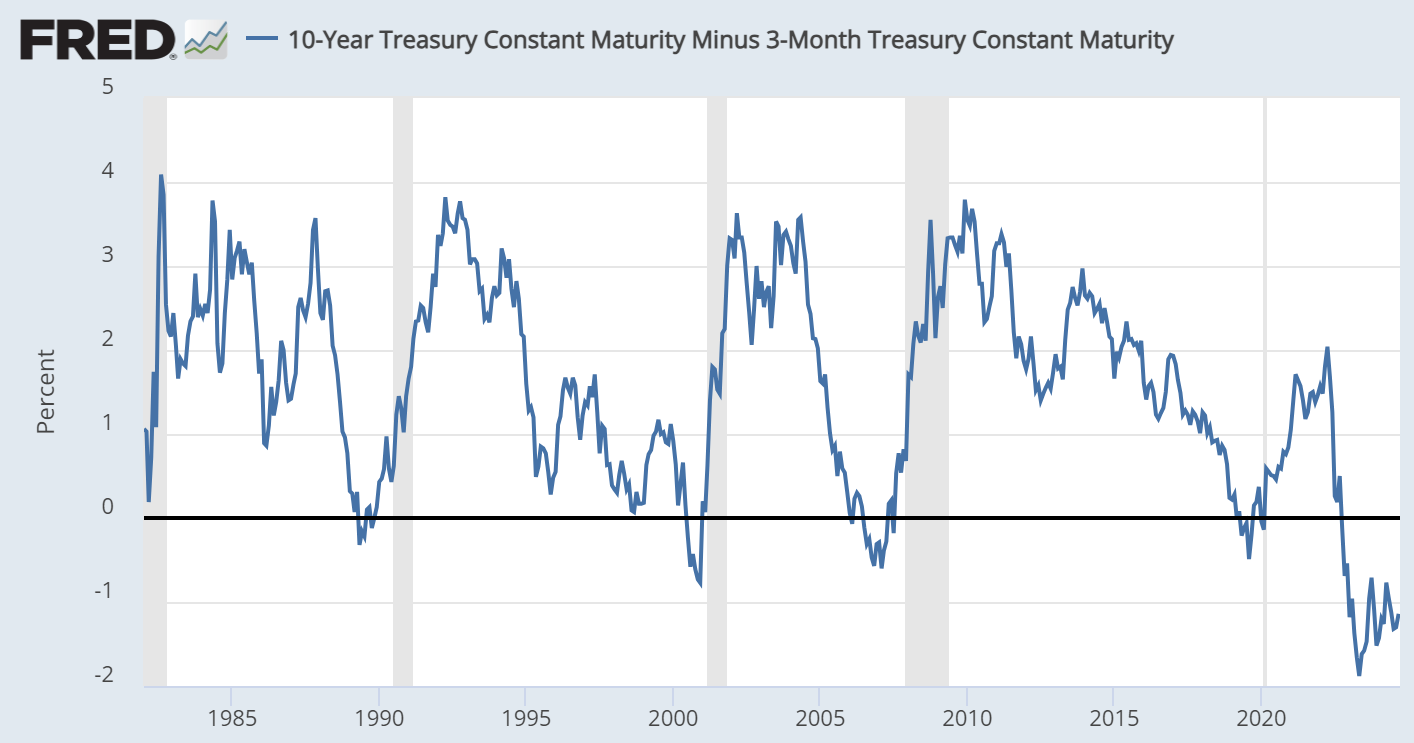


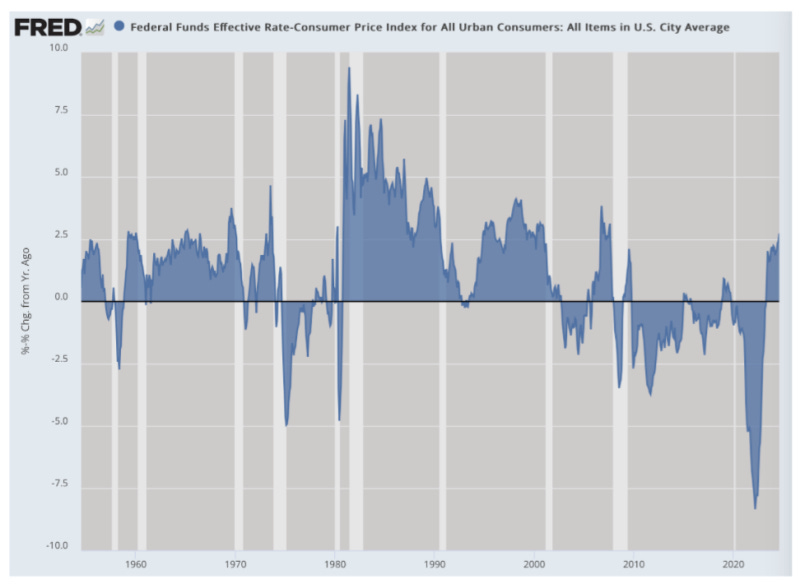



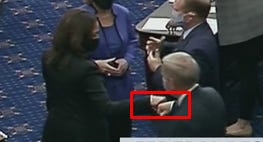

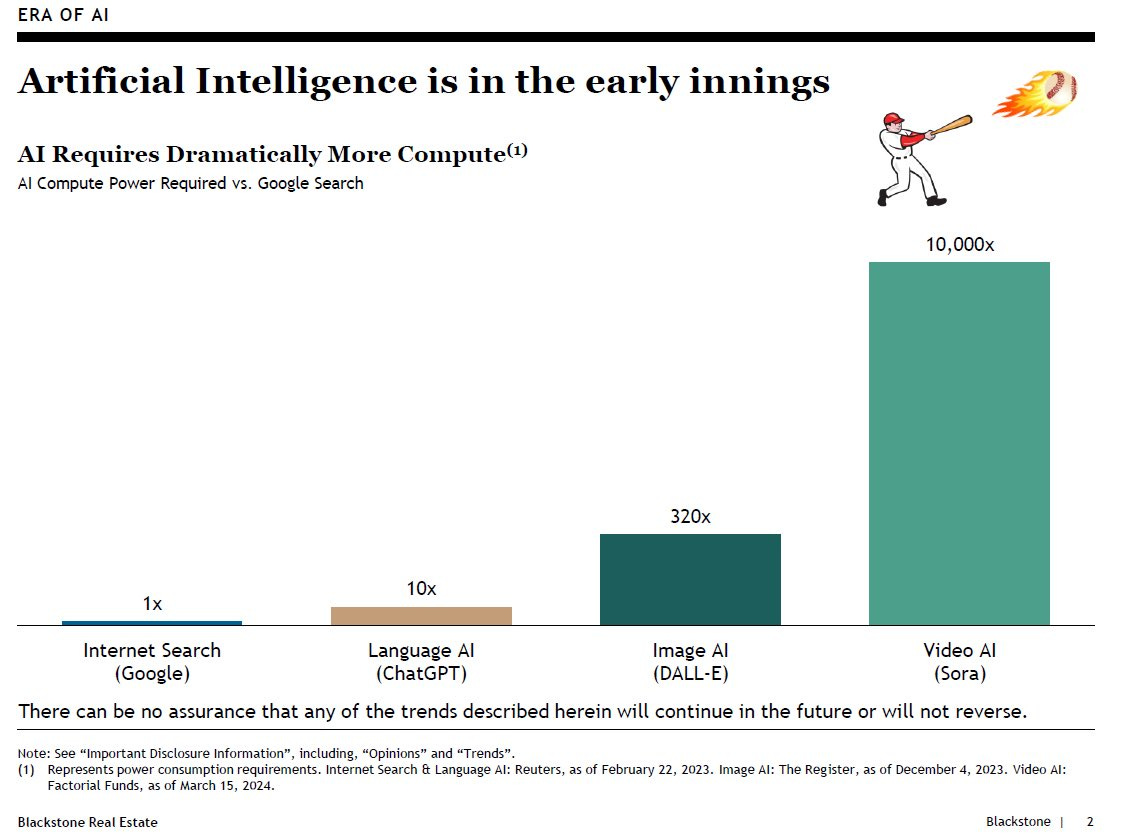
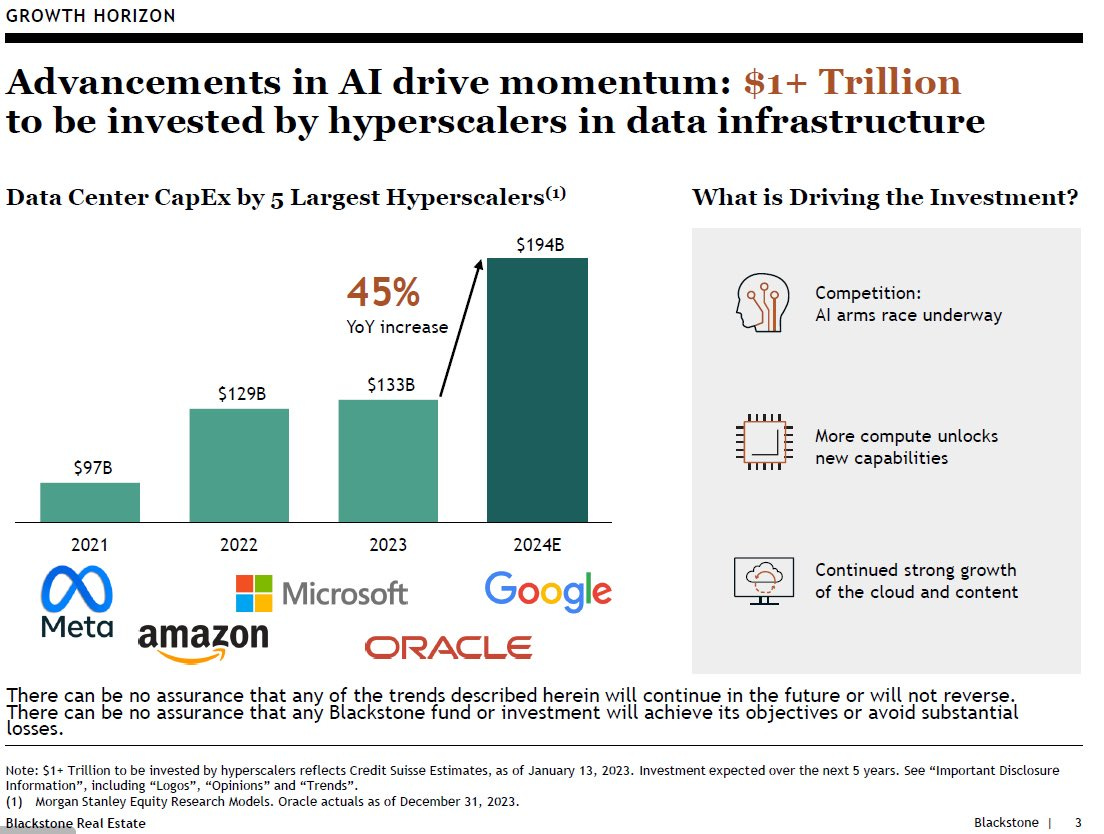
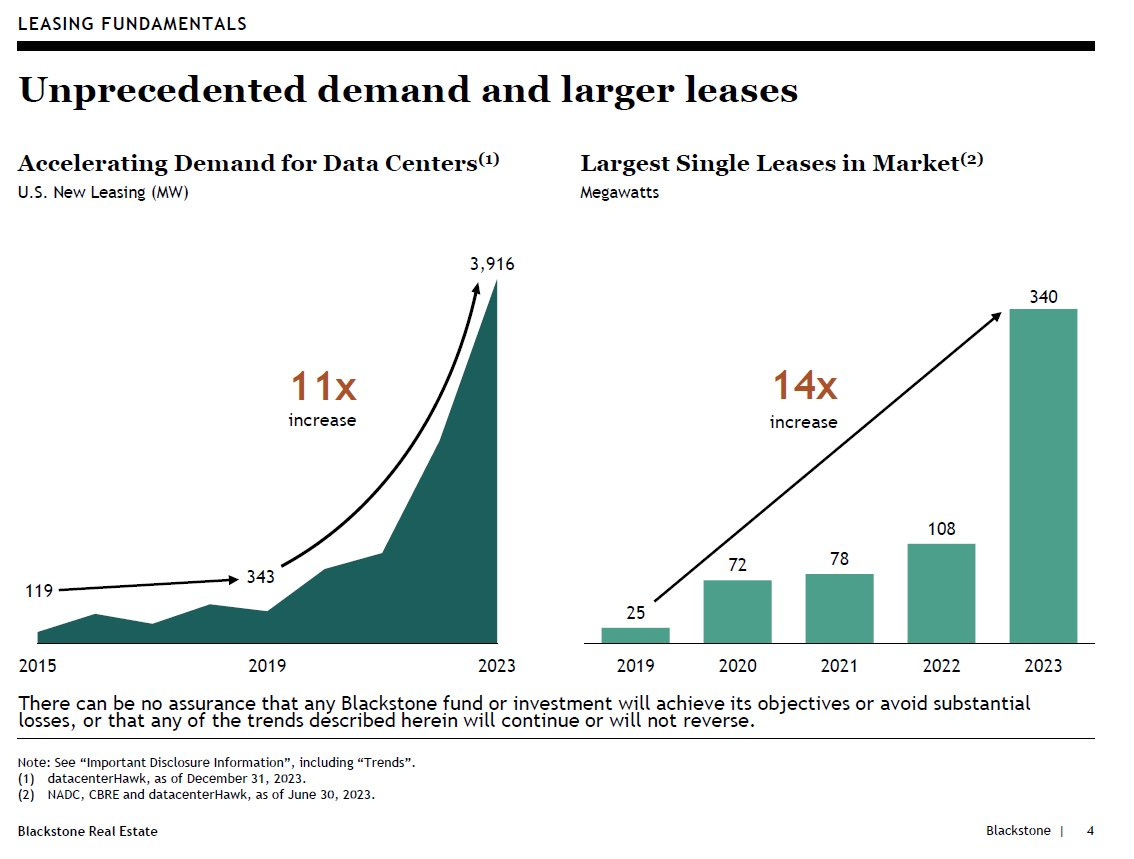
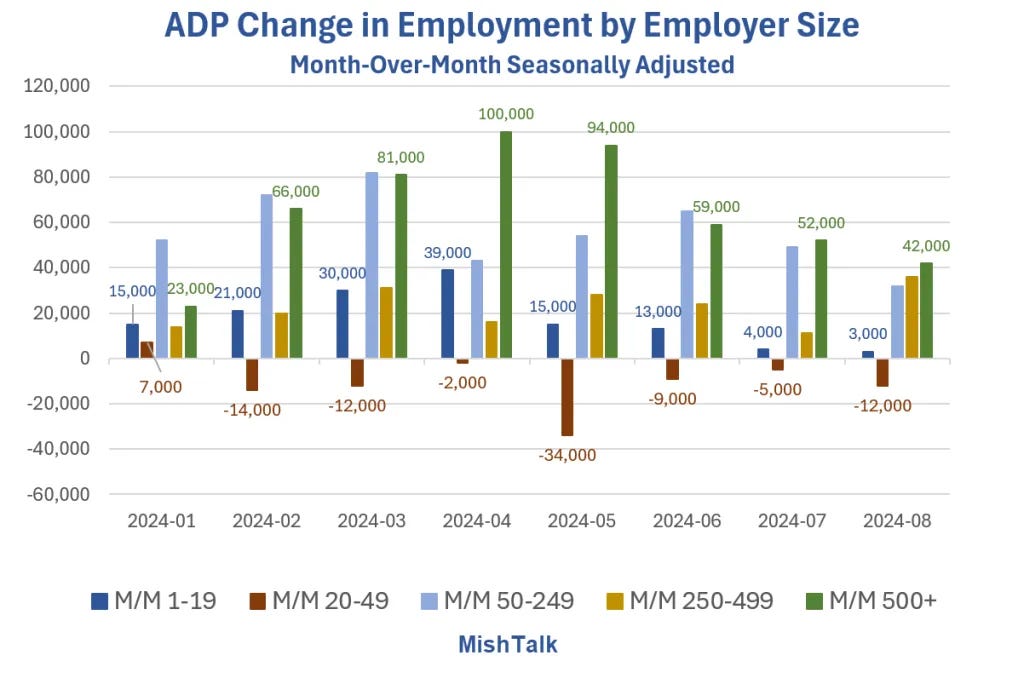
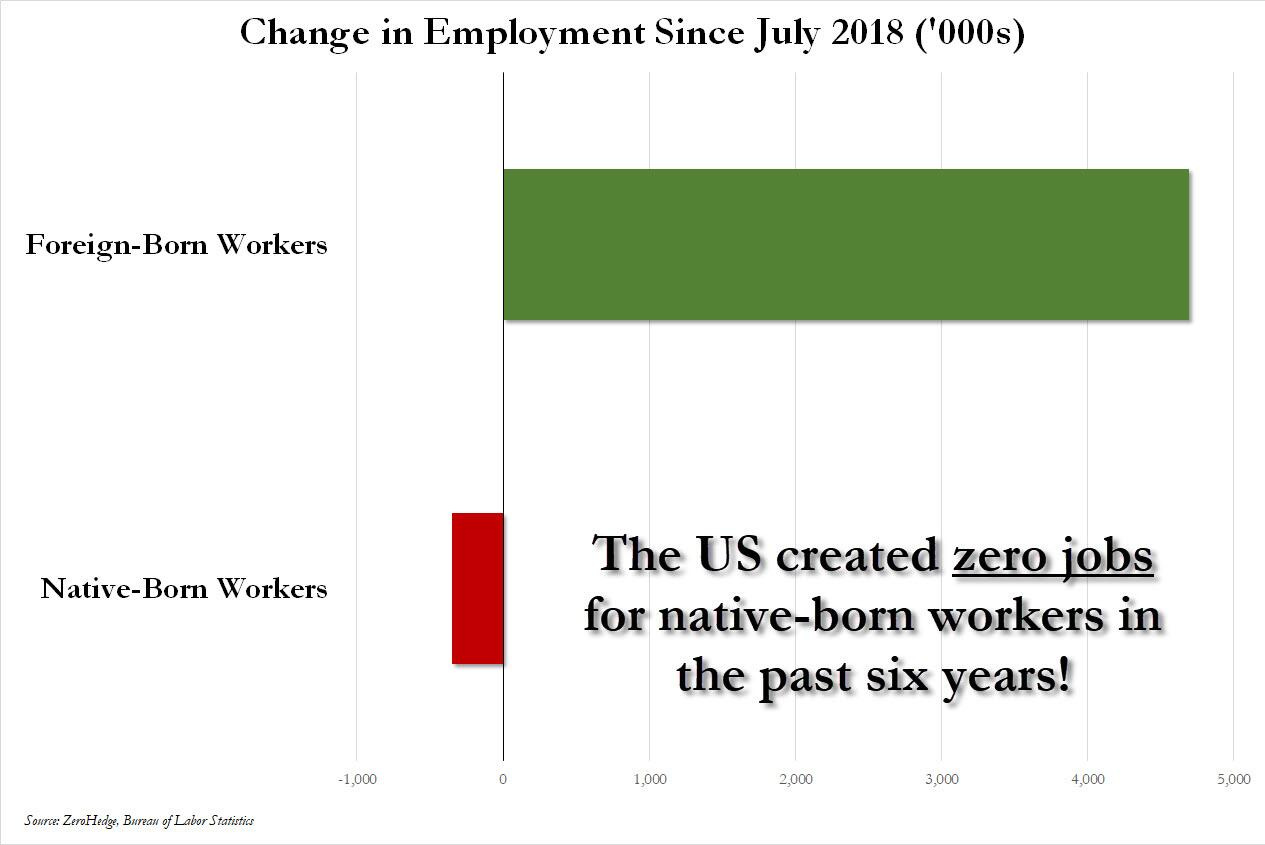

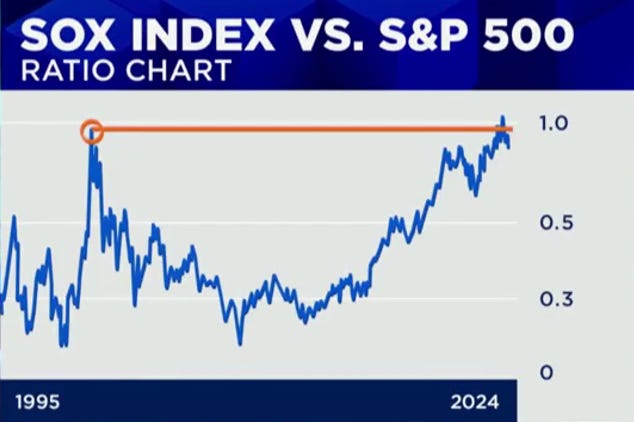
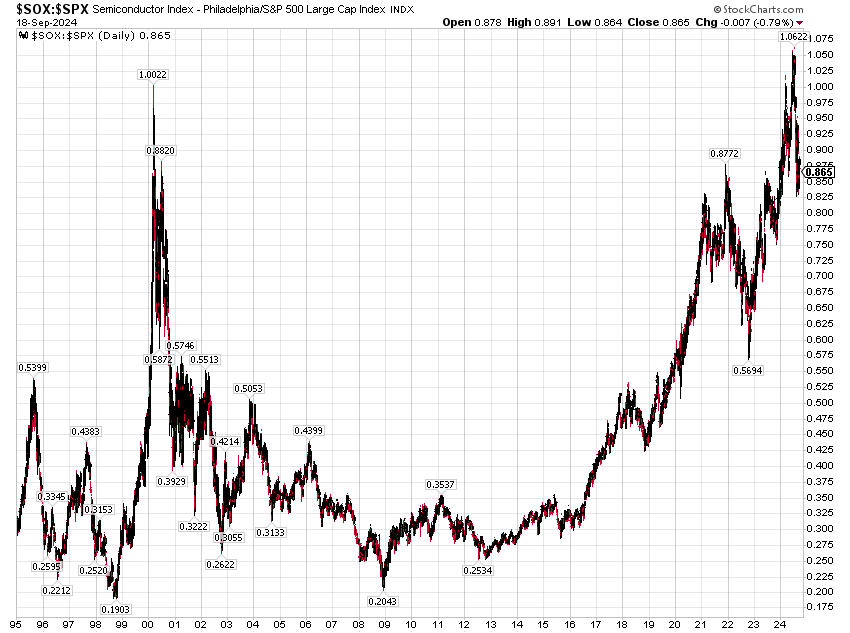

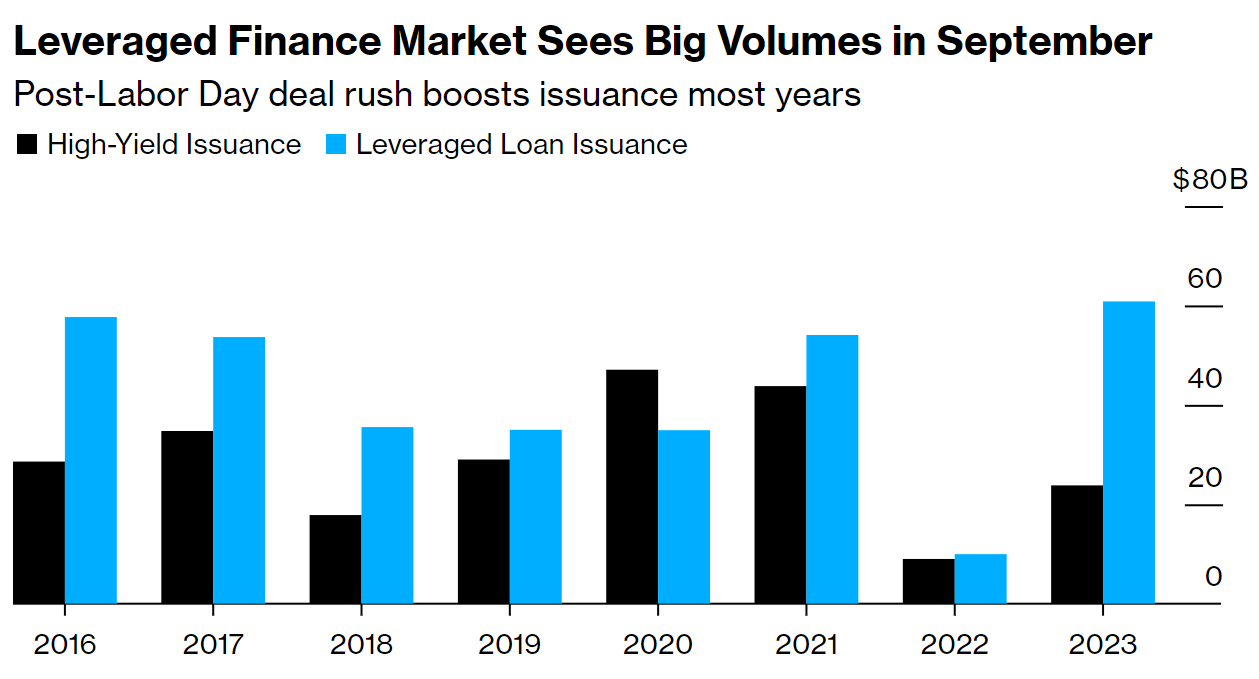
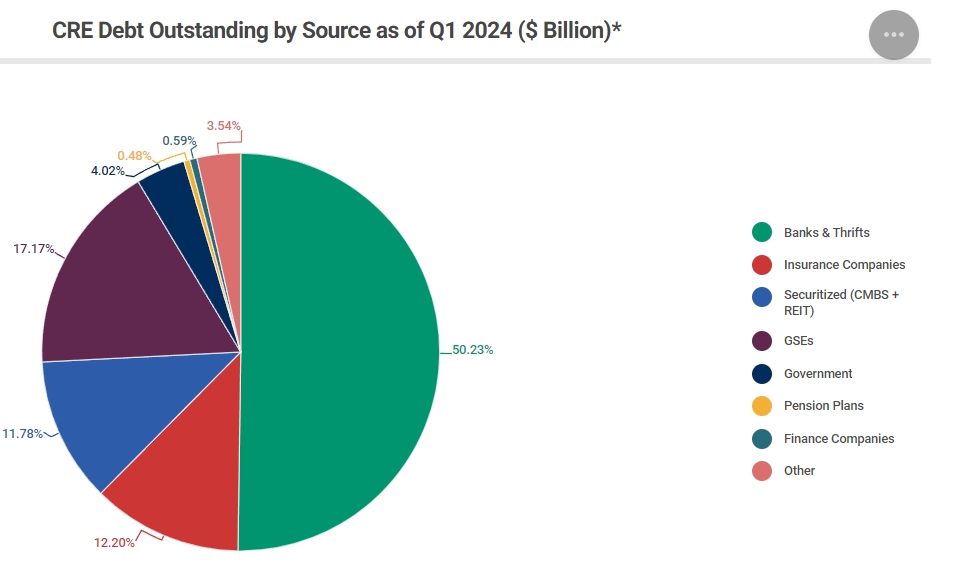
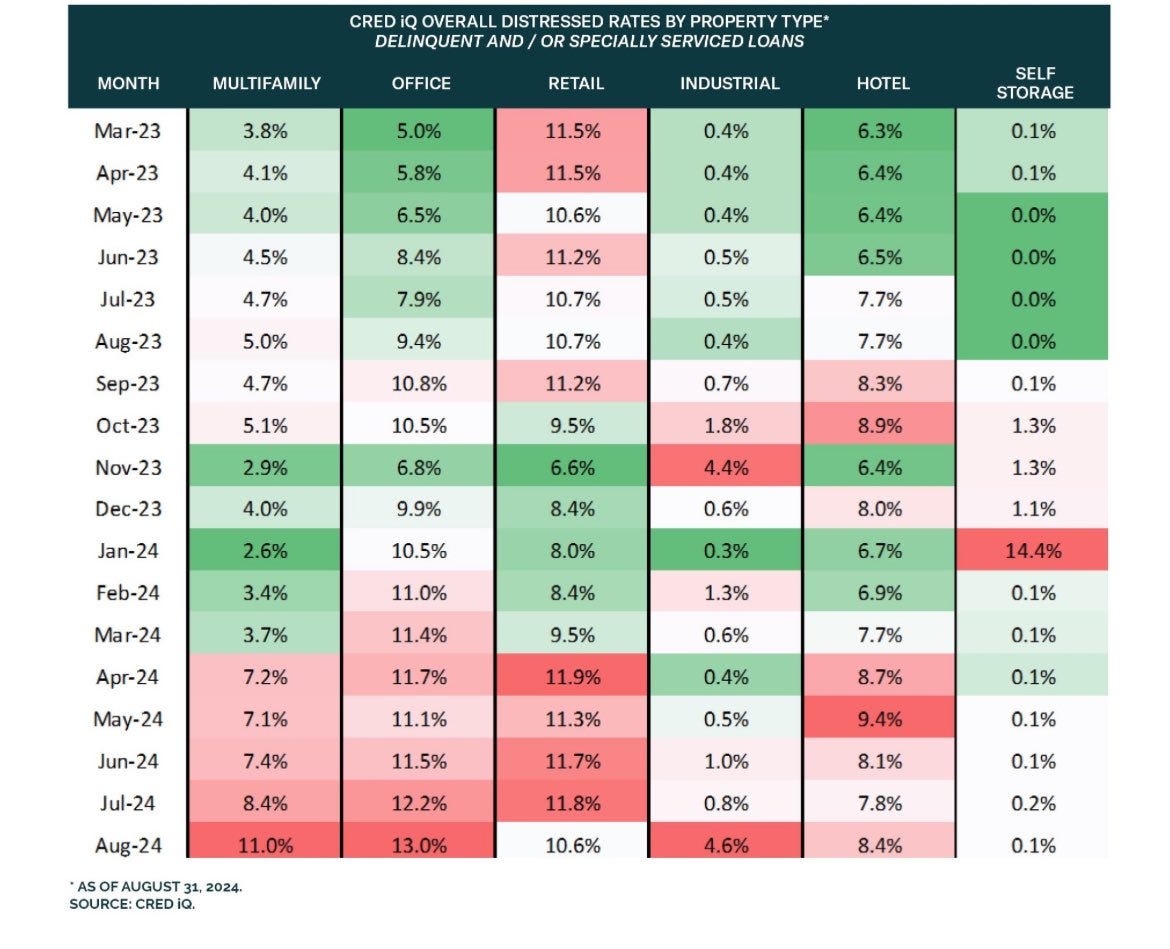
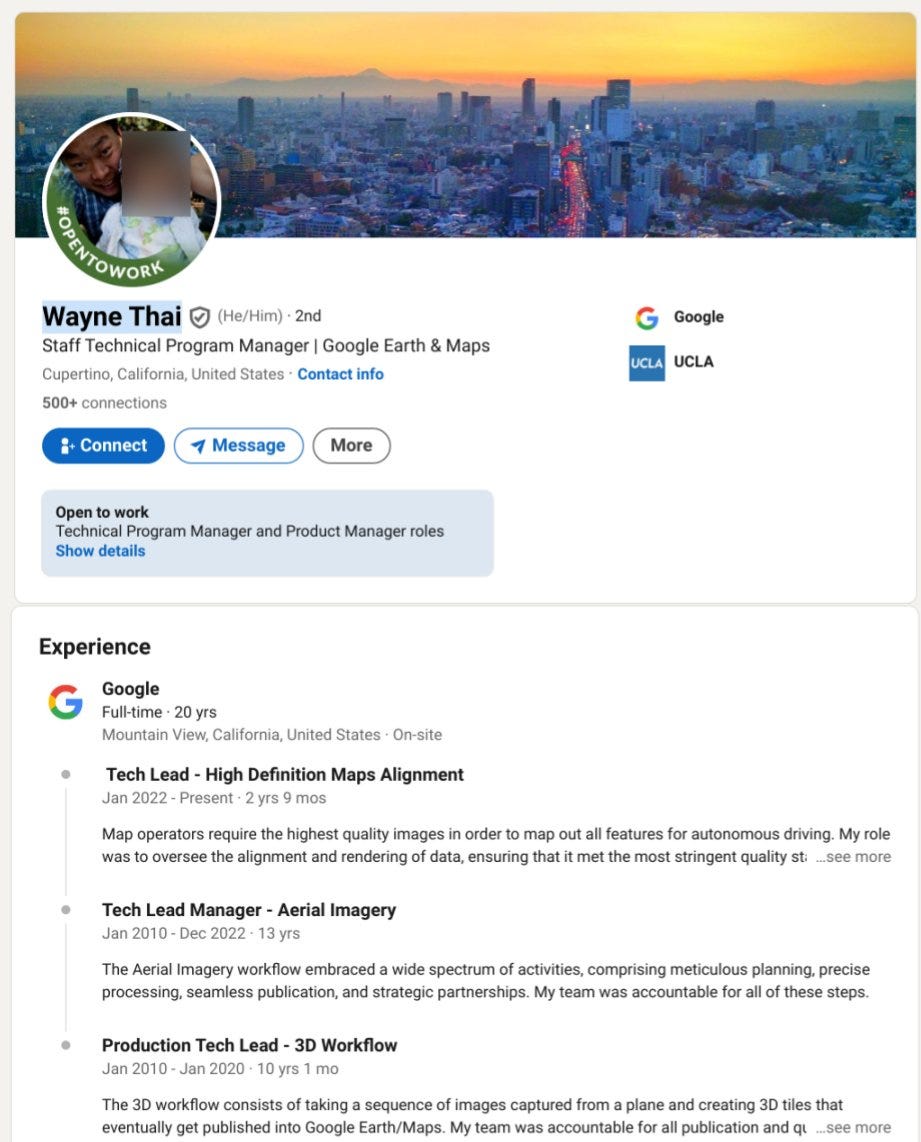
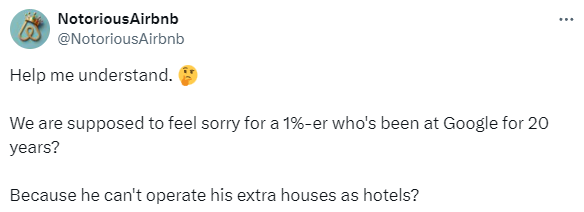

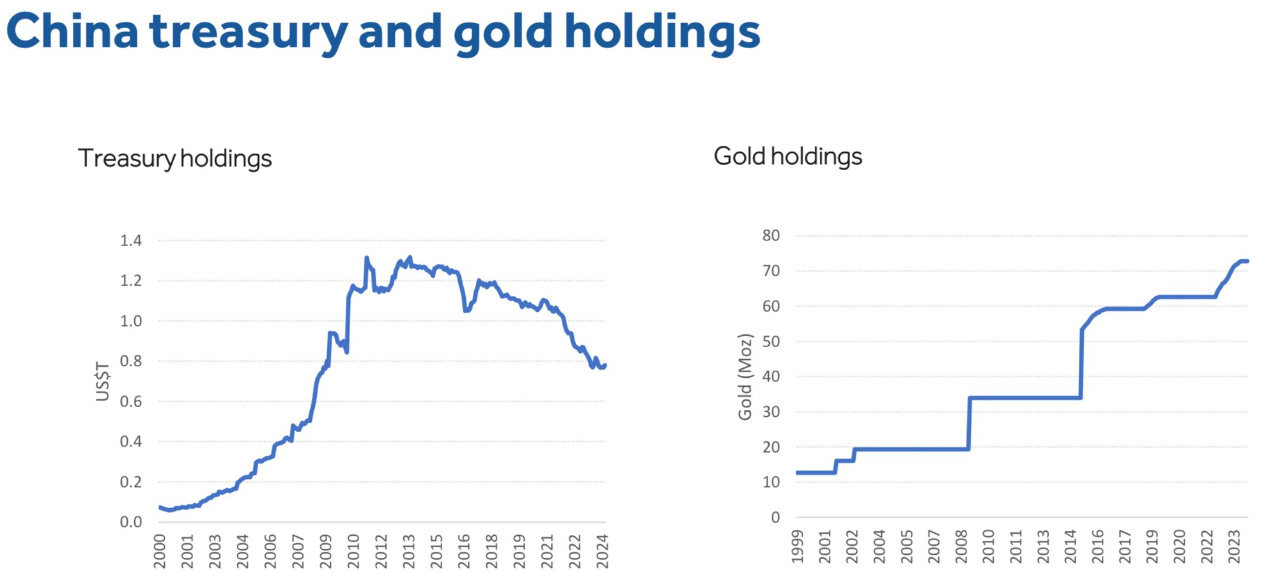
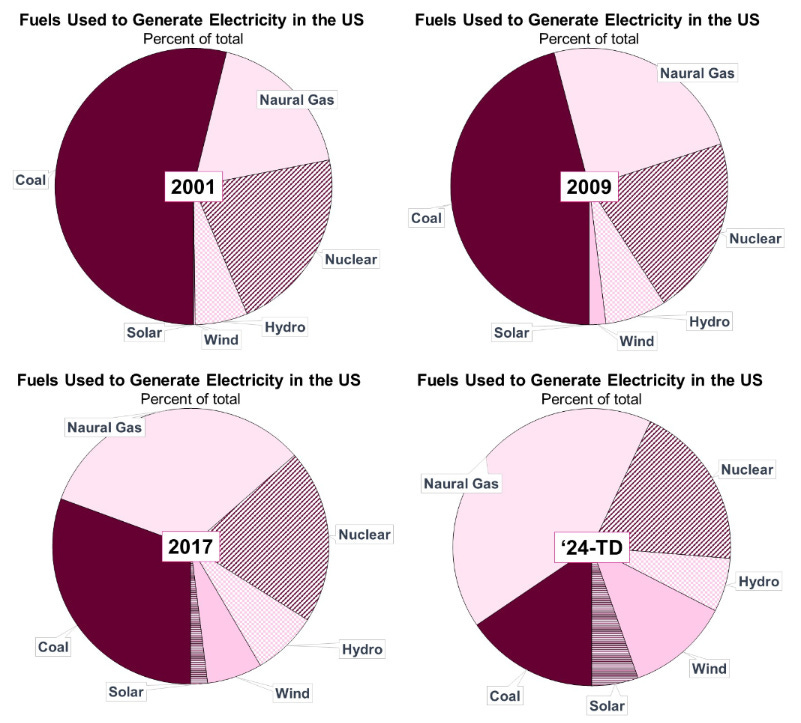

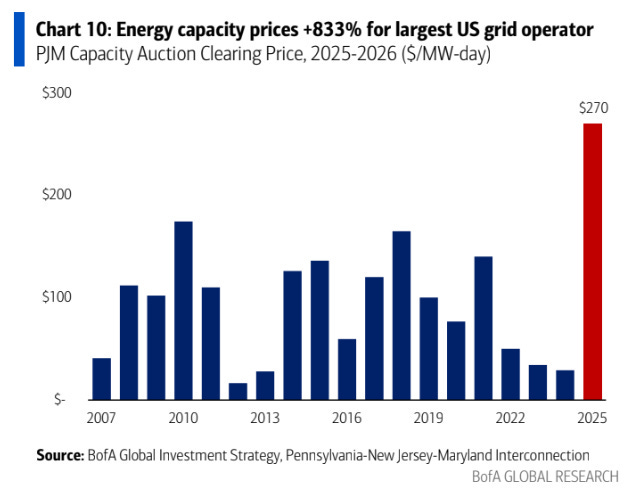
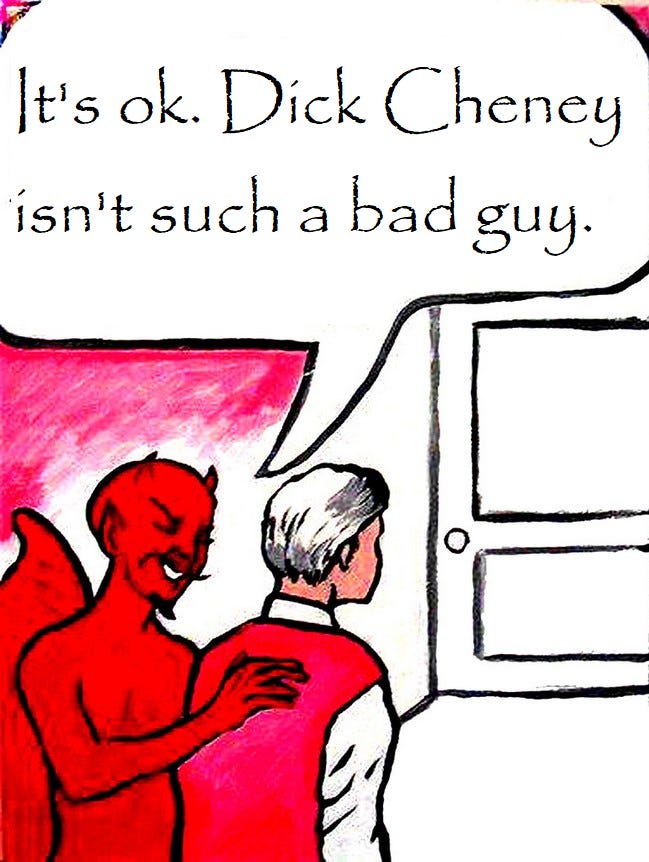
The writing is on the wall: Inflation of 2%, using a highly flawed benchmark, is now the absolute FLOOR going forward. Periods of massive overshoots will never be counteracted by periods where the Fed seeks inflation under 2%. They have learned nothing whatsoever from the past four years. And they are nothing if not political. 25 bp was the central expectation until Sen. Warren called for 75 bp a few days ago and the “compromise” was Greg Ip of the WSJ browbeating the Fed (in an editorial masquerading as a “news” article) to cut 50 bp early this week. I guess there’s a need to make Americans feel better off over the next seven weeks in order to “save our democracy” etc.
Great selection of stuff this week. What do you think of Tom McClellan's POV that the Fed should follow the 2 year and they are way behind? Did I see him say they should've cut 150bps?!